Understanding fractions Geometry Worksheets for Ages 3-6
18 filtered results
-
From - To
Discover our engaging "Understanding Fractions Geometry Worksheets" designed specifically for ages 3-6! These worksheets introduce young learners to basic fraction concepts through fun and interactive activities. Children will explore shapes, halves, quarters, and more, fostering their mathematical understanding in a playful manner. Our resources encourage hands-on learning, helping kiddos grasp essential geometry and fraction skills while boosting their critical thinking. Perfect for homeschooling, classroom use, or supplementary practice, these worksheets offer vibrant illustrations and simple explanations that make learning enjoyable. Start building a strong foundation in math and geometry for your little ones today, and watch their confidence grow as they master new concepts!
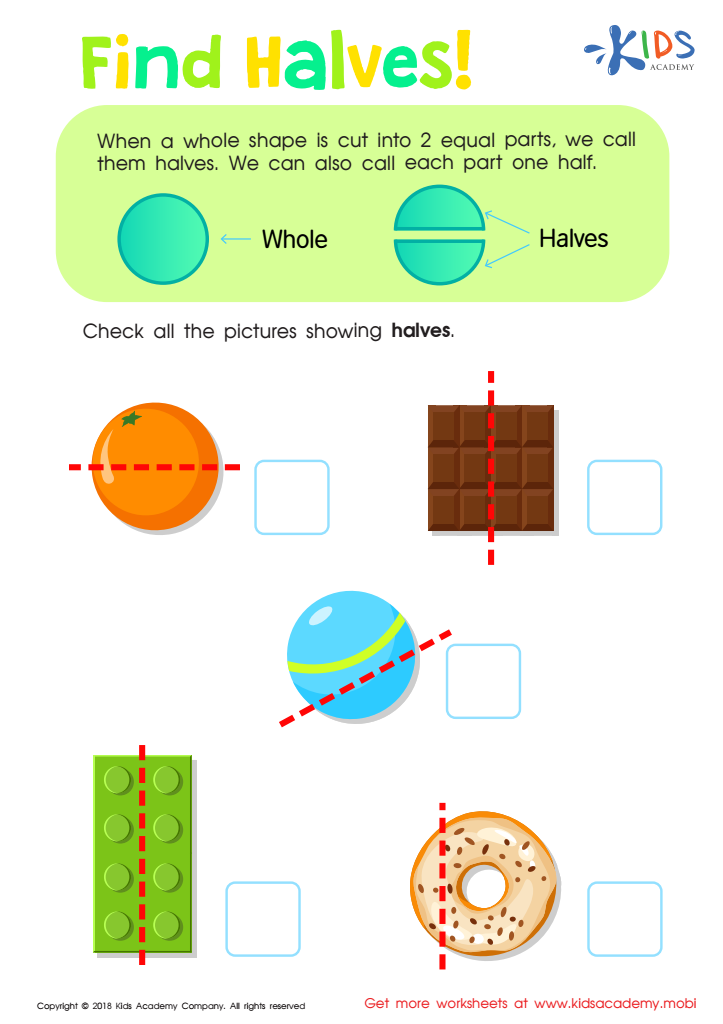

Find Halves Worksheet
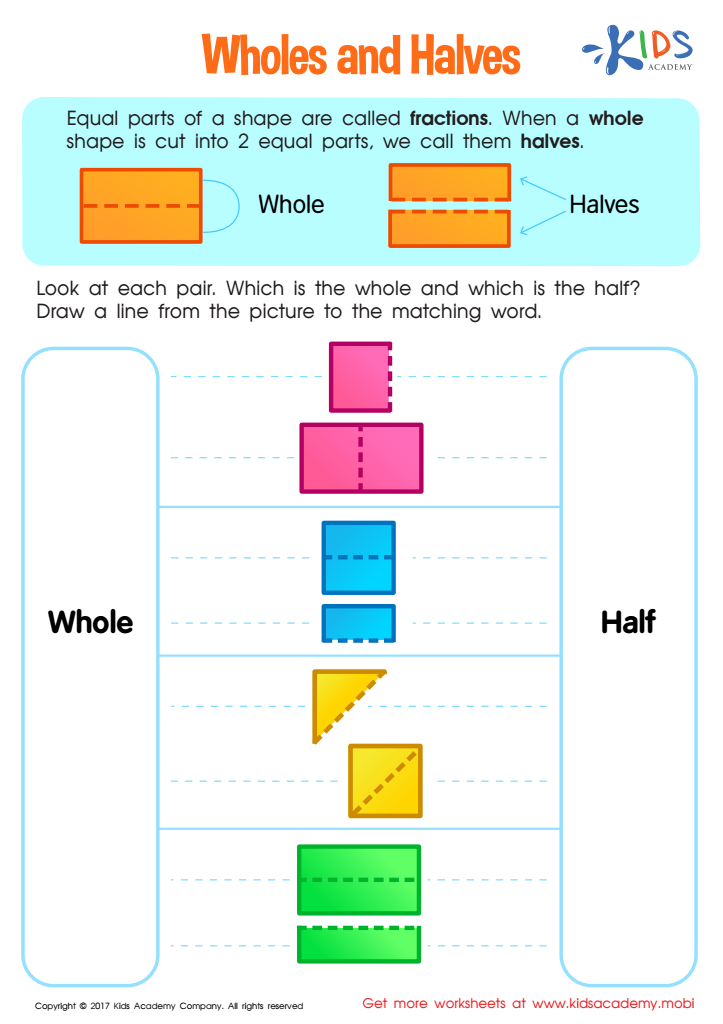

Wholes and Halves Worksheet
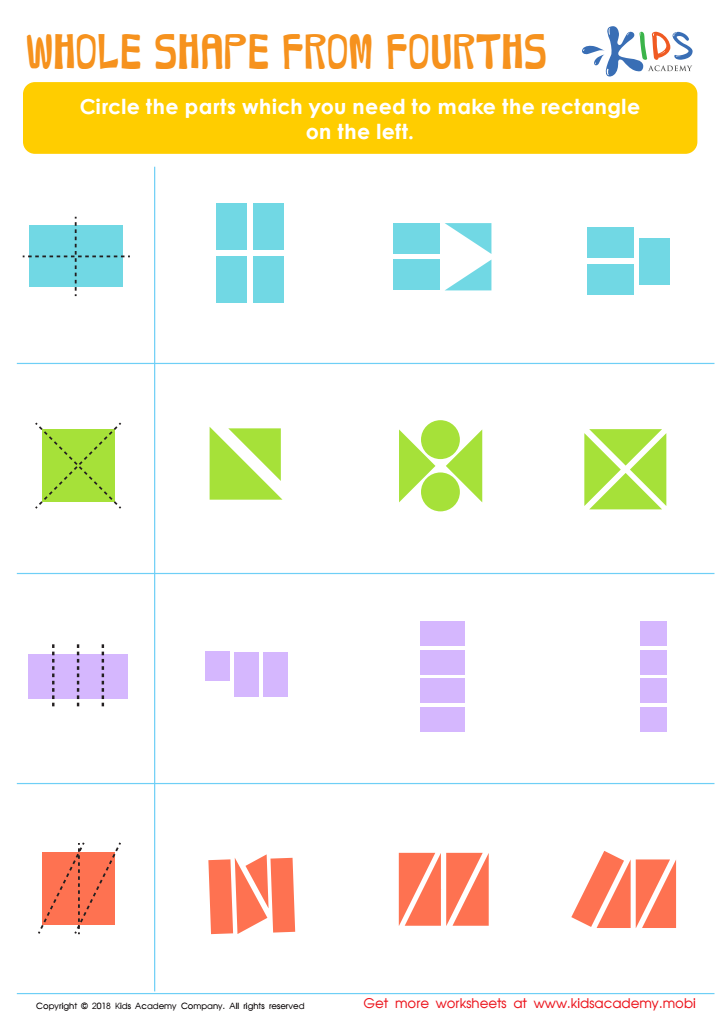

Whole Shape from Fourths Worksheet
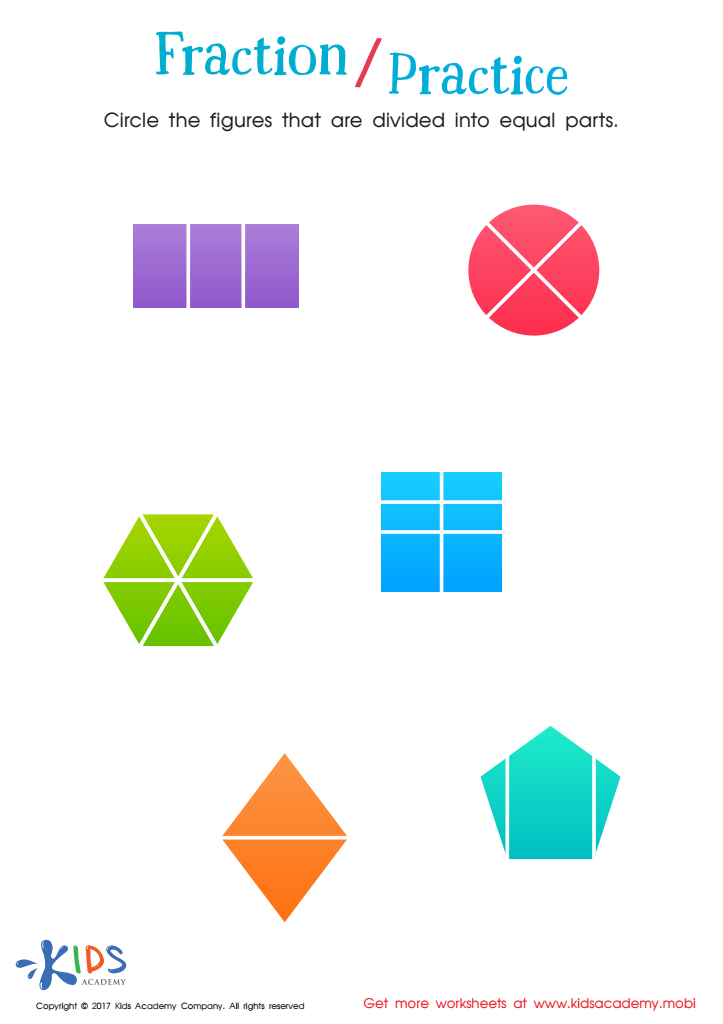

Fractions: Shapes Worksheet
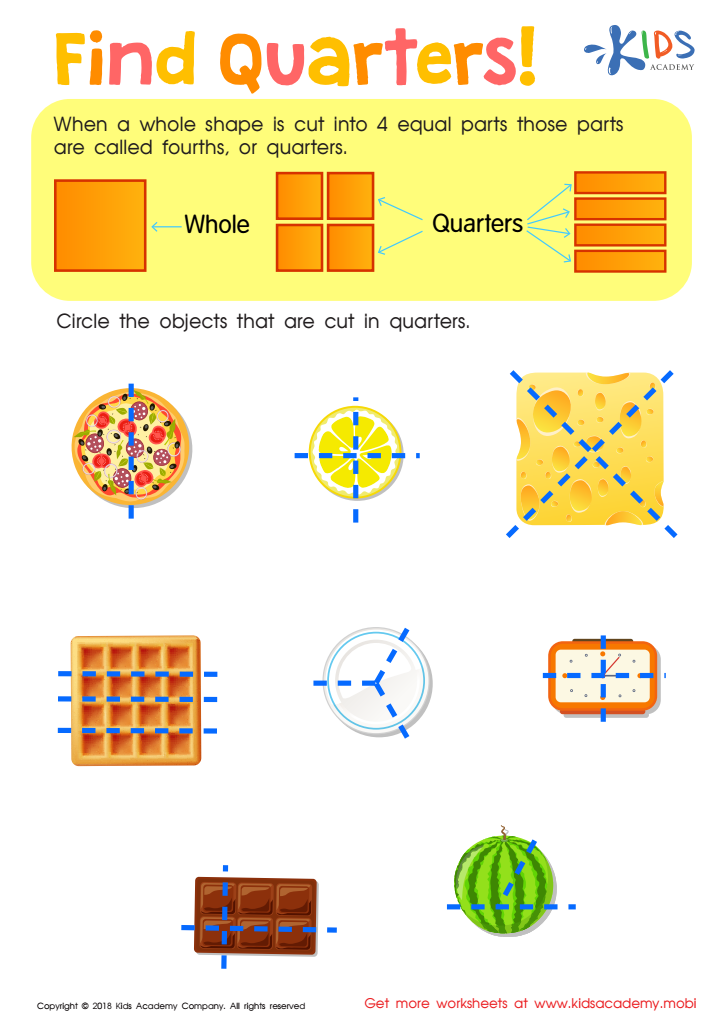

Find Quarters Worksheet
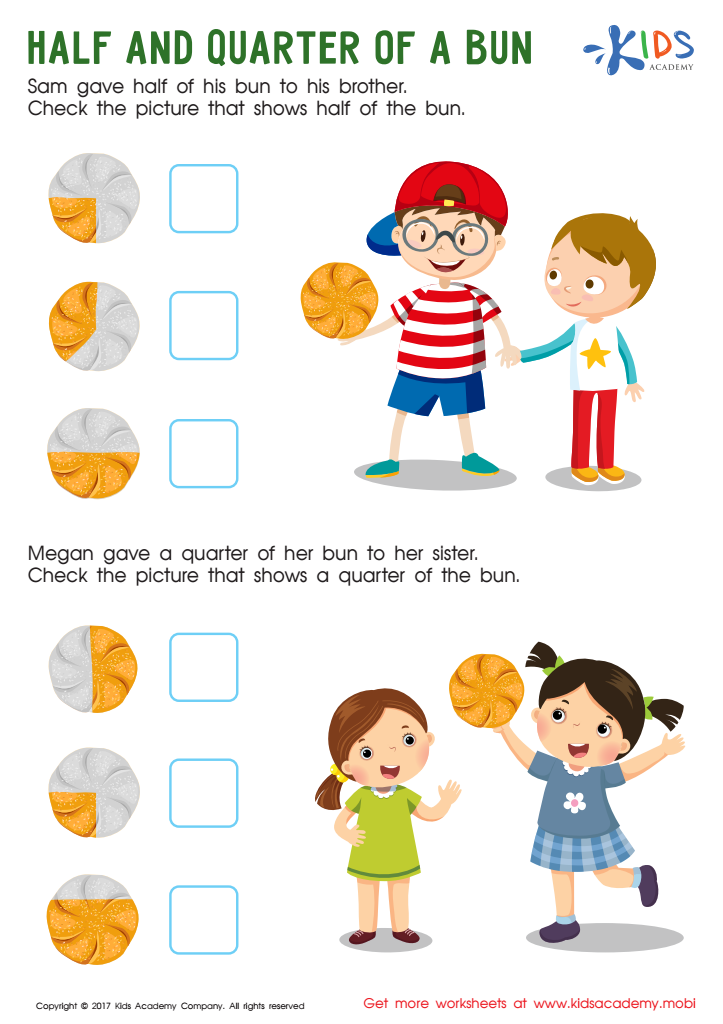

Half and Quarter of a Bun Worksheet
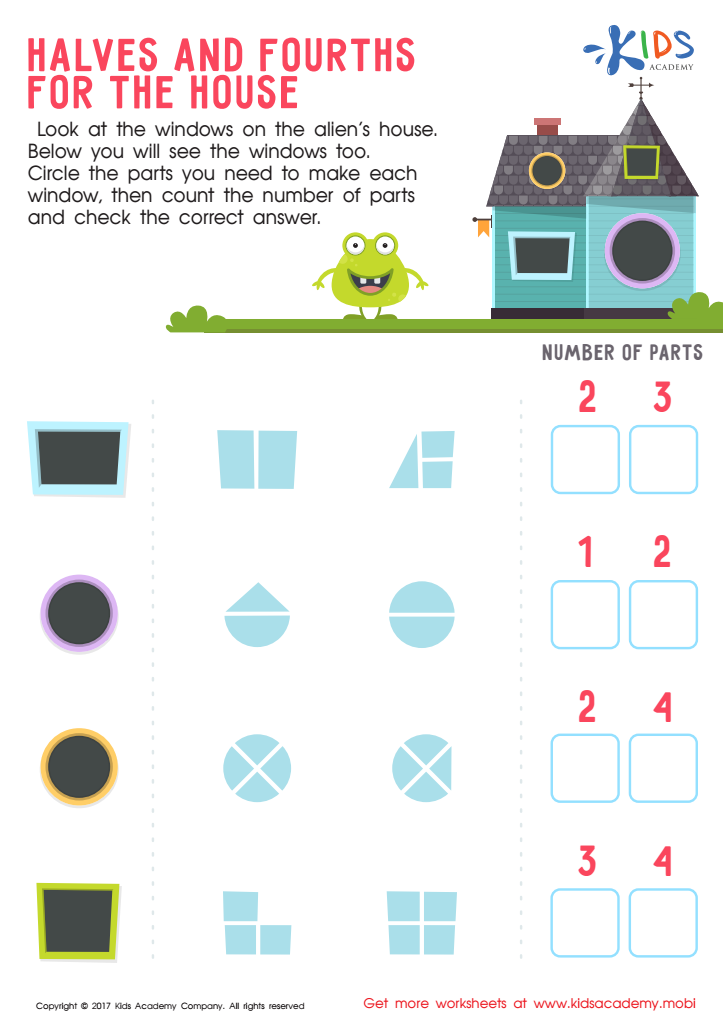

Halves and Fourths for the House Worksheet
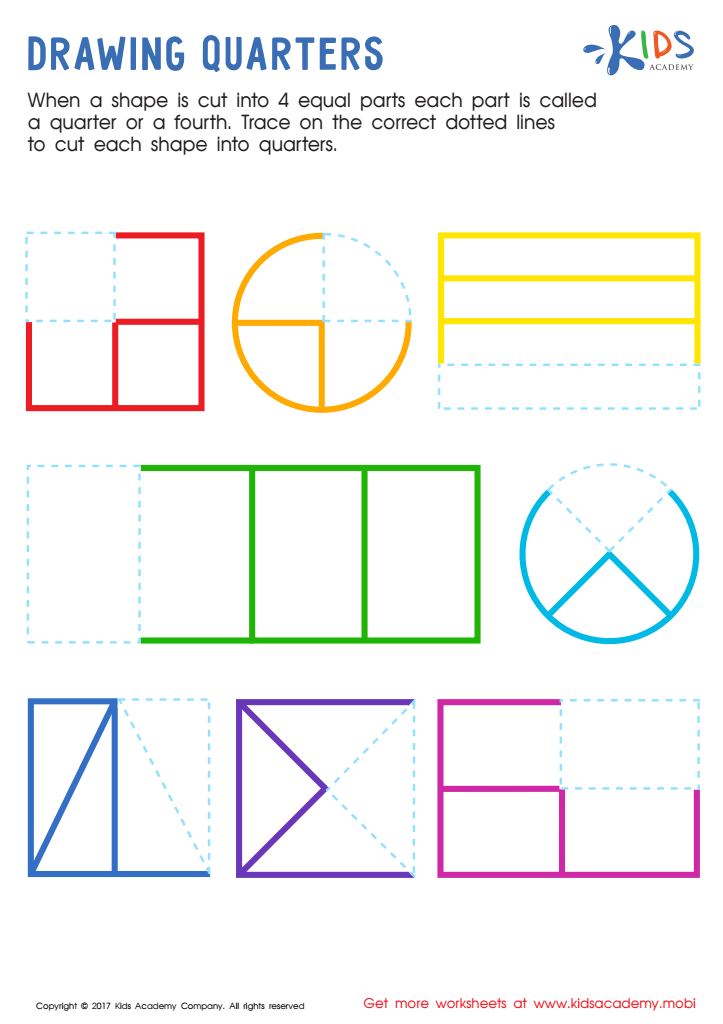

Drawing Quarters Worksheet
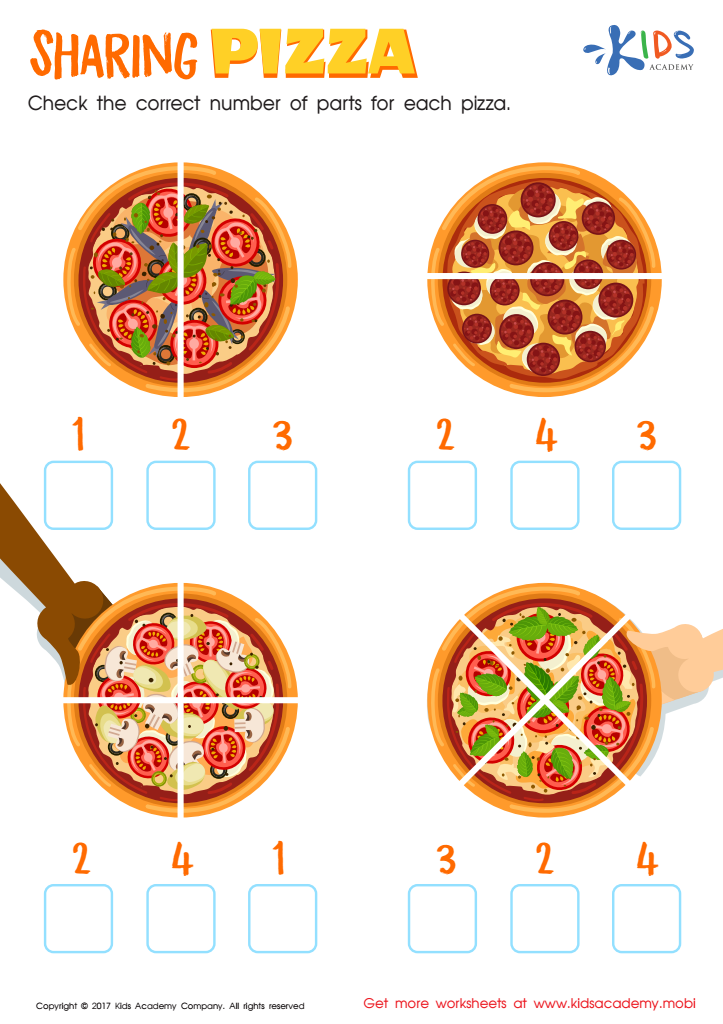

Sharing Pizza Worksheet
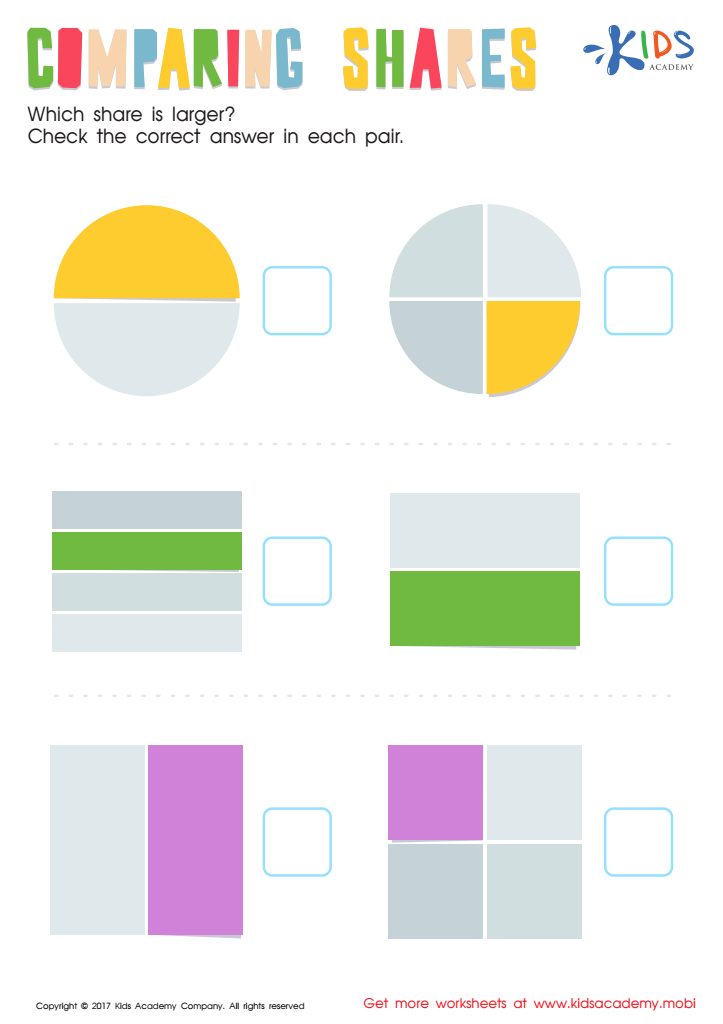

Comparing Shares Worksheet
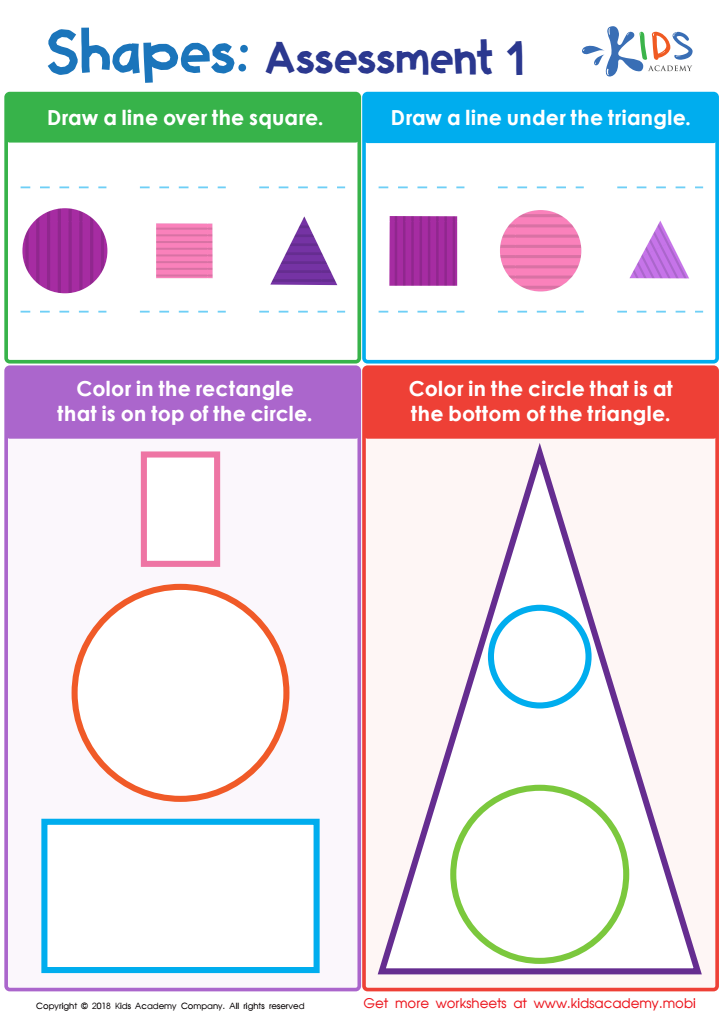

Shapes: Assessment 1 Worksheet
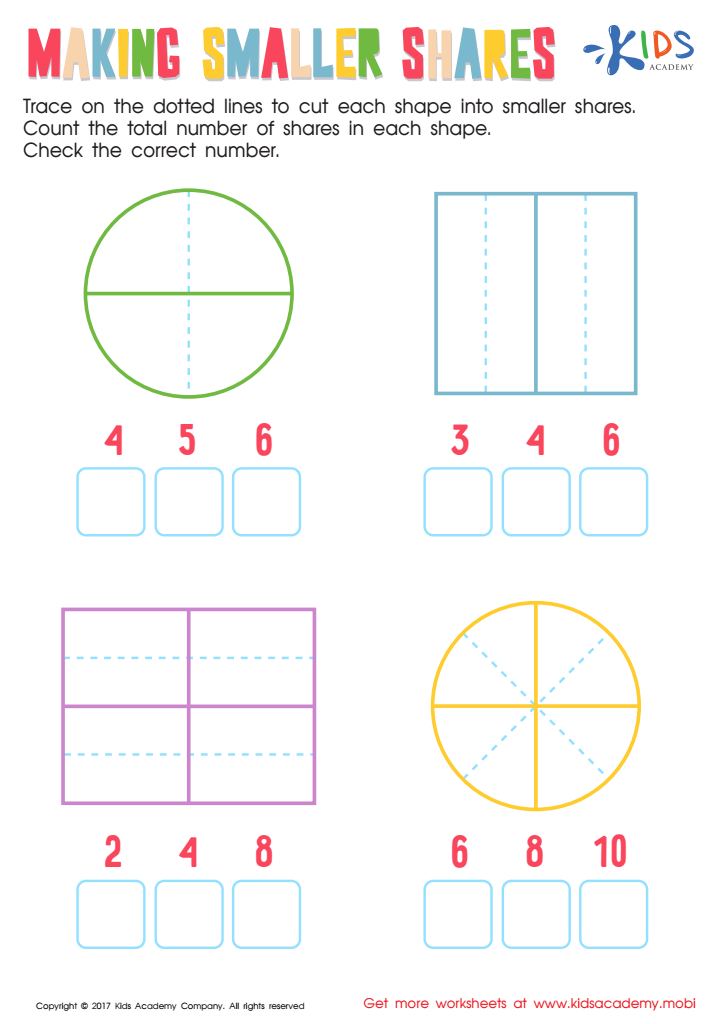

Making Smaller Shares Worksheet
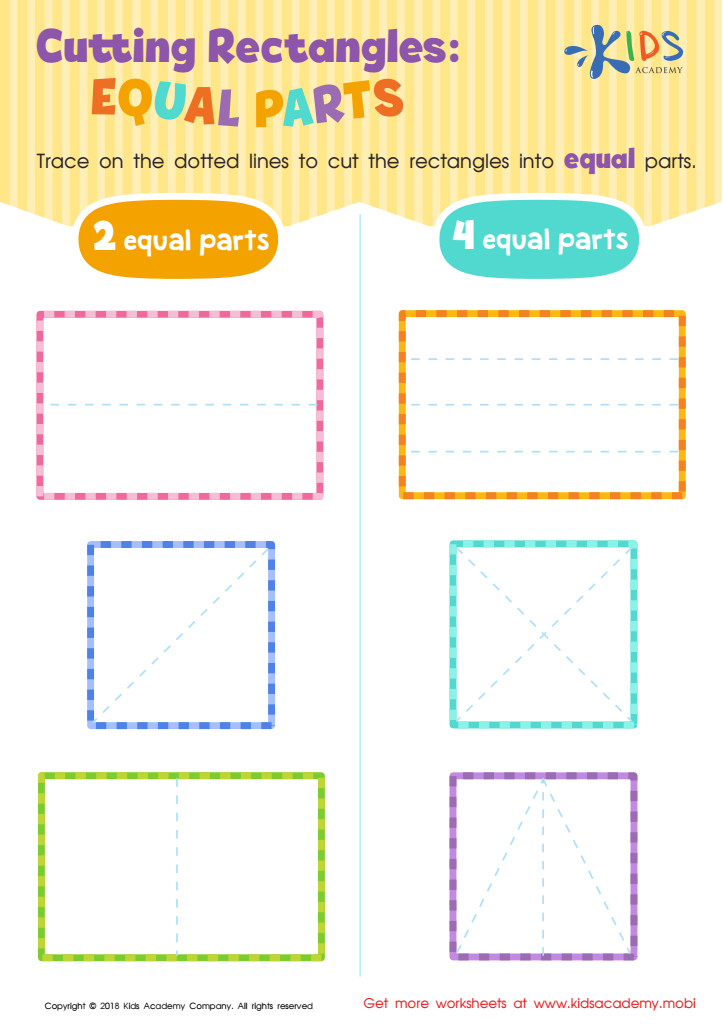

Cutting Rectangles: Equal Parts Worksheet
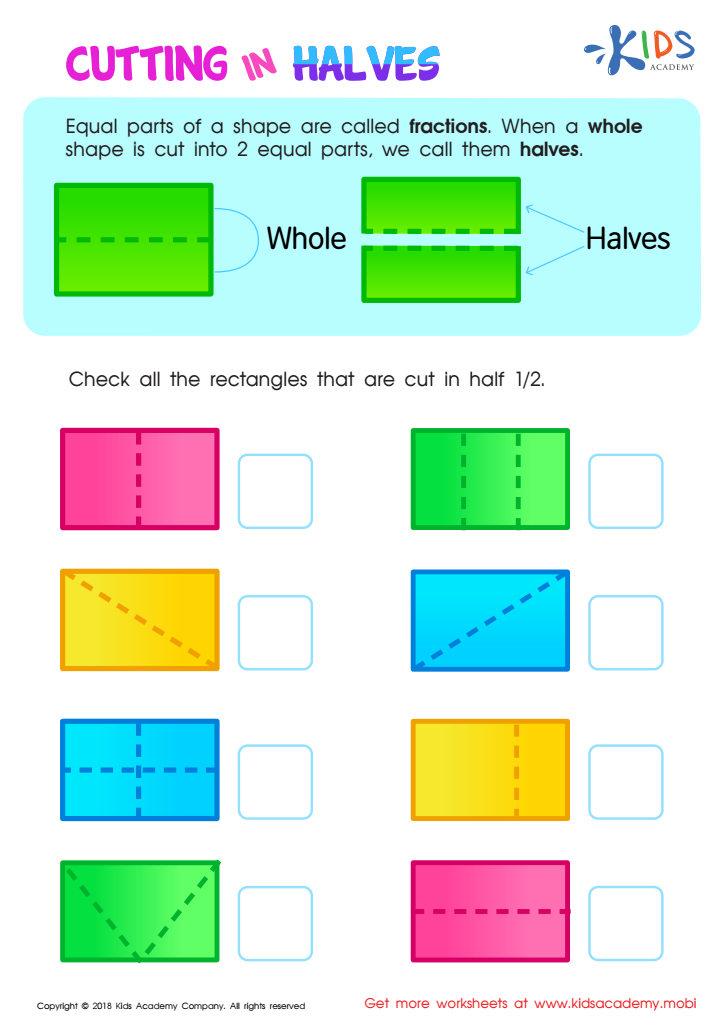

Cutting in Halves Worksheet
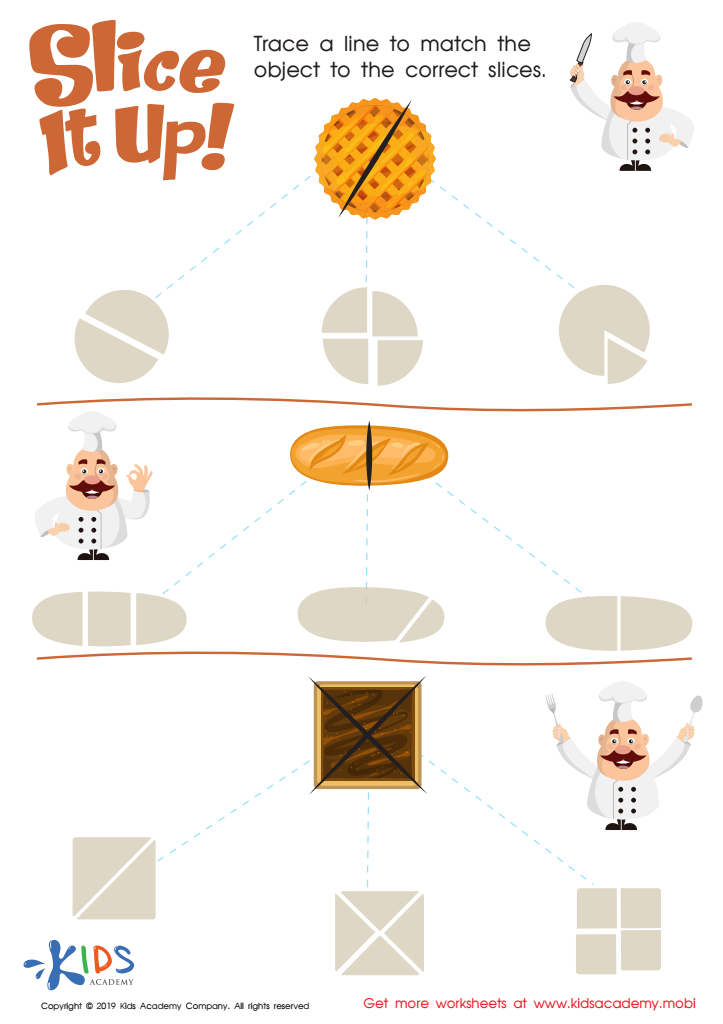

Slice It Up Worksheet
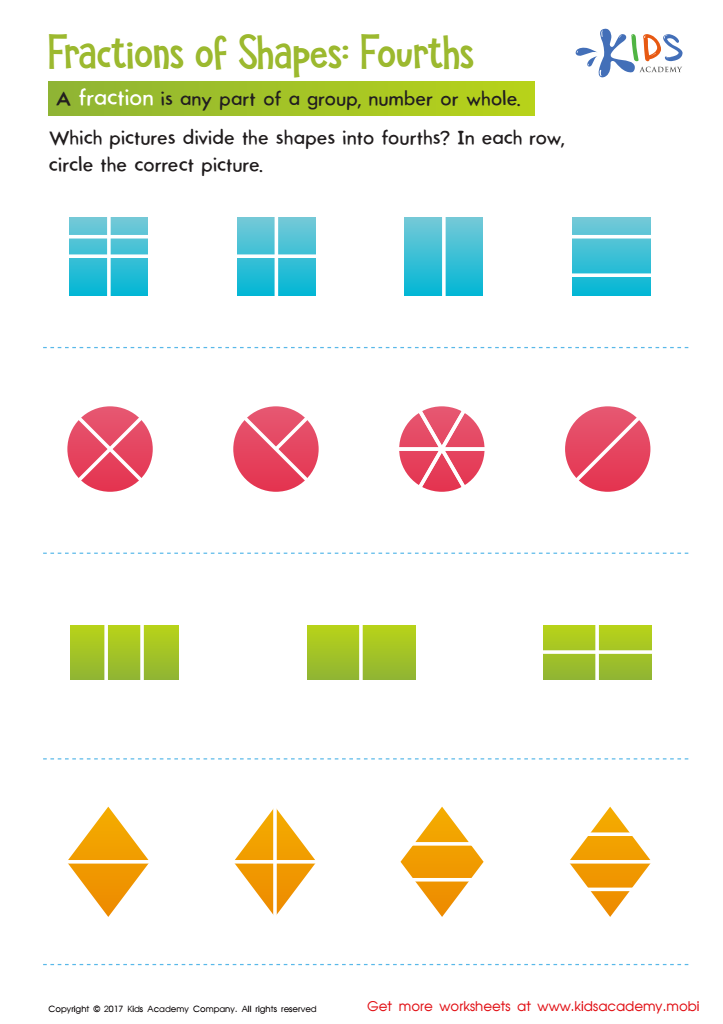

Fractions of Shapes Worksheet
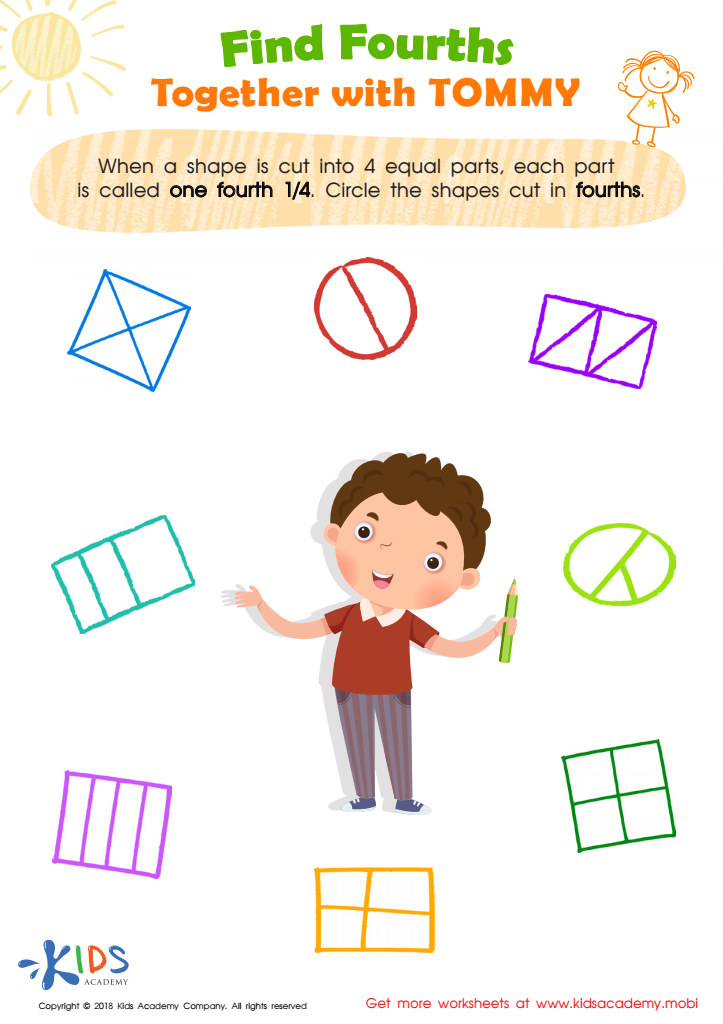

Find Fourths Together with Tommy Worksheet
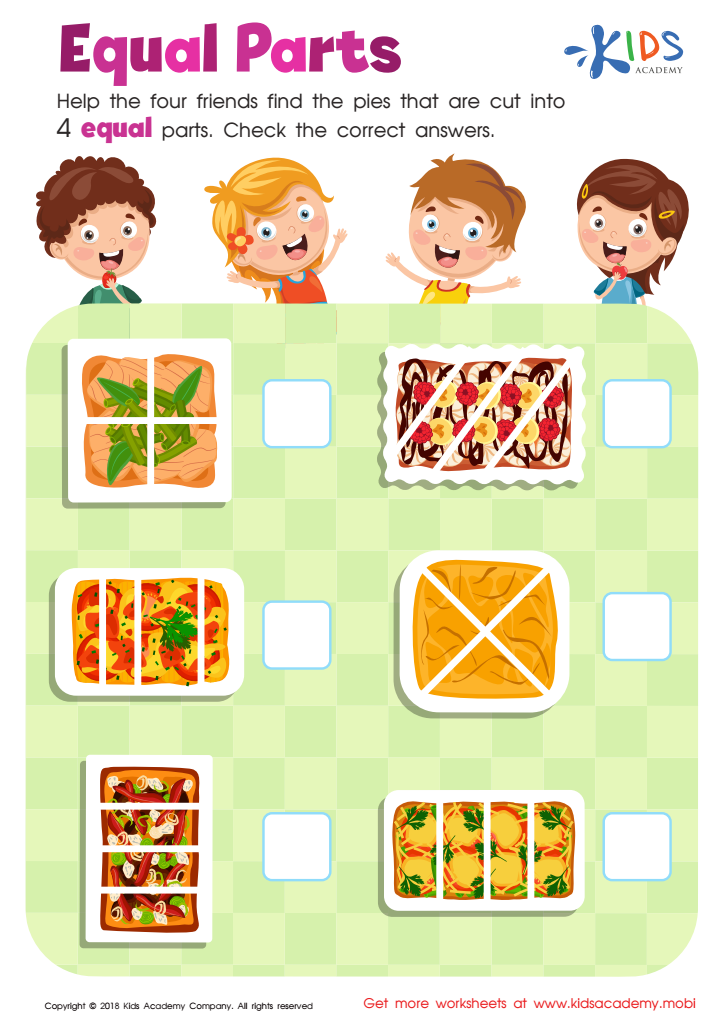

Equal Parts: Food Worksheet
Understanding fractions and geometry early in a child's education is crucial for several reasons. First, these concepts form the foundation for mathematical reasoning, promoting critical thinking skills vital in later stages of learning. Early exposure to geometry helps children recognize shapes and understand spatial relationships, fostering their ability to visualize and manipulate objects in their environment. For instance, recognizing and identifying patterns in shapes can enhance their problem-solving skills.
Likewise, introducing fractions at a young age demystifies the concept of part-to-whole relationships. By presenting fractions through real-life examples, such as sharing food or dividing play materials, children learn valuable skills around sharing, fairness, and even basic arithmetic. Understanding fractions helps form a groundwork for more complex mathematical concepts later in school.
Furthermore, engaging with these subjects promotes cognitive development, as children learn to classify, compare, and differentiate between various dimensions and aspects of shapes and quantities. Parents and teachers should recognize the joy in learning through playful activities that integrate fractions and geometry, as these skills not only enhance mathematical understanding but help in developing patience, teamwork, and creativity. By emphasizing these foundational concepts, adults set the stage for a positive attitude towards math in a child’s future educational journey.

 Assign to My Students
Assign to My Students


























